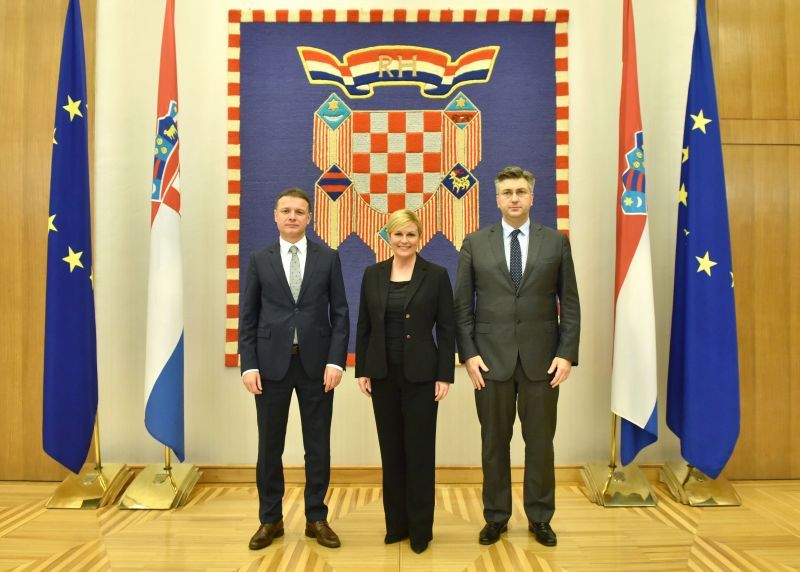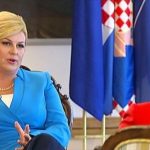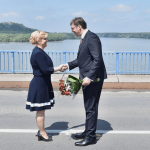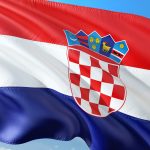The reactions are split on both sides of the political spectrum.
When Croatian President Kolinda Grabar-Kitarović issued an invitation to Serbian President Aleksandar Vučić to arrive in an official visit to Croatia in mid-February, the news came as a surprise to many. The relations between the two countries have been tense since the 1990s war (and, within former Yugoslavia, for much longer), but have recently grown even worse, especially after the Serbian government in late January organised a controversial exhibition at the United National headquarters in New York about Jasenovac, the infamous concentration camp during the Second World War in Croatia, which caused a war of words between the two governments about the content of the exhibition.
What is not surprising was the fact that the Serbian President has accepted the invitation, always eager to present himself internationally as a great fighter for peace and improved relations in the region, while at the same time allowing his officials to give much more jingoistic statements targeted at his more hard-line voters.
However, the most surprising were the reactions which the invitation caused in Croatia, with some rightwing politicians supporting the President’s initiative and others saying that Vučić should at least apologise for statements given during a much more radical part of his political career, when he openly advocated for parts of Croatia’s territory to be taken over by Serbia. Somewhat unexpectedly, leftwing politicians have also not unanimously supported the invitation, perhaps falsely thinking that by criticising the move they will earn a few votes of the more nationalistic voters, which will never happen.
Most shockingly, it seems that the government was not informed that the invitation was coming, at least not at this precise moment, which is a further proof that the relations between the President and Prime Minister Andrej Plenković are not as good as many had expected them to be, although the President is a former HDZ member and was the party’s candidate at the last presidential elections (and is supposed to be the party’s nominee at the next elections in late 2019 as well). How cordial their relations are could best be seen just a few days ago, at the photo taken ahead of one of their supposedly regular meetings, with Prime Minister and Speaker of Parliament Jandroković looking like they would rather be anywhere else. The Prime Minister has so far remained mostly silent about the whole issue, while Defence Minister Damir Krstičević was among those demanding an apology for Vučić’s 1990s statements.

Quite unusual is the reaction of most of the hard-right in Croatia, which is known to react strongly against any kind of rapprochement with Serbia, although only when leftwing parties are in power. With the current President’s unofficial role as the “queen of the right,” it seems she can do whatever she wants without being called “a traitor” and “hater of everything which is Croatian,” which are accusations reserved for the other side of the political spectrum. There are no tent protests in front of her office and no threatening letters coming from veterans’ associations and self-proclaimed protectors of national interests. Presumably, most of them do not know what to think about all of this.
After so many contradictory statements coming from the Croatian President, they are not sure what to believe about Vučić’s visit. Just a few months ago, the President cancelled Vučić’s then scheduled visit, saying that “a lot of water will pass through the Danube before Croatia and Serbia are able to consider themselves to be friendly countries.” The President has met with Vučić before, with a meeting on a bridge between Croatia and Serbia a few years ago being the most memorable one due to flowers being handed over, and she even attended his inauguration in Belgrade last year. At the same time, she infamously apologised for a “mistake” of giving some Croatians children Serbian chocolates. Therefore, many of her supporters are not sure whether they should, as one commentator wrote, consider Vučić to be “an old enemy or a new friend.”
While the rightwing representatives are mostly keeping silent, the government led by Prime Minister Andrej Plenković, considered to be a more moderate politician, is quietly sending signals that the moment might not be the best one for such visit to occur. So, the situation is the reverse of what might have been expected just a few days ago, when many were ready to accuse Plenković of being too mild towards Serbia.
Still, some of the conservative commentators were not able to hide their surprise with the President’s move, and openly asked her why she was inviting someone who should supposedly be ignored due to false allegations against Croatia which keep coming from Belgrade. Also, she is being accused that she has already launched a campaign for the next presidential elections and that the invitation to Vučić is just an attempt to try to win over some of the more moderate voters she has lost during the last three years. The news that the invitation received support from the Embassy of the United States in Croatia, which immediately issued a rare public statement, is for some just another proof that Croatia’s foreign policy, such as it exists, is led not from Zagreb, but from Brussels, Berlin and Washington, with the President being a puppet of the American authorities. The fact that the President, immediately before coming into office, was a high-ranking official at the NATO, and was formerly also the Croatian ambassador in Washington, does nothing to weaken the impression.
On the left, the invitation has also caused divisions, with support coming from, for example, the leader of the Serb national minority in Croatia Milorad Pupovac, former Foreign Minister Vesna Pusić and former President Ivo Josipović, who himself tried and partially succeeded in improving the relations between the two countries during his one presidential term from 2010 to 2015. His task was somewhat more manageable, since for the first two years he had as his counterpart Serbian President Boris Tadić, a much more acceptable politician to many in Croatia. After Tadić lost his re-election campaign in 2012, he was replaced by Tomislav Nikolić, who as a former “Chetnik duke” was persona non grata for everybody in Croatia. Interestingly, he used to be Vučić’s political mentor. On the other hand, some of the other supposedly liberal politicians have decided to use this opportunity to try to improve their patriotic credentials and criticise the President for what is undoubtedly one of her better decisions in the last three years.
Despite all the protests, the visit will hopefully take place, and that is good news. We can only hope that it will not be just a symbolic step, but that real progress will be achieved in at least some of the many open issues between Croatia and Serbia. The best opportunity for that will be a meeting between Vučić and Croatian Prime Minister Plenković since they are the ones who actually hold the real power in the two countries. Although Croatia and Serbia share similar constitutional arrangements, with governments being much more powerful than the presidents, in Serbia Vučić is the one making all the crucial decisions, while Prime Minister Ana Brnabić’s role is to present Serbia as being more tolerant and diverse than it really is than, and not to make any crucial decisions.
A more likely scenario is for the visit to produce just a few high-minded statements, with relations between the two countries returning to their regular cycle of slight improvements followed by extended period of tensions. Still, some might say that even avoidance of further deterioration might be counted as a success.








